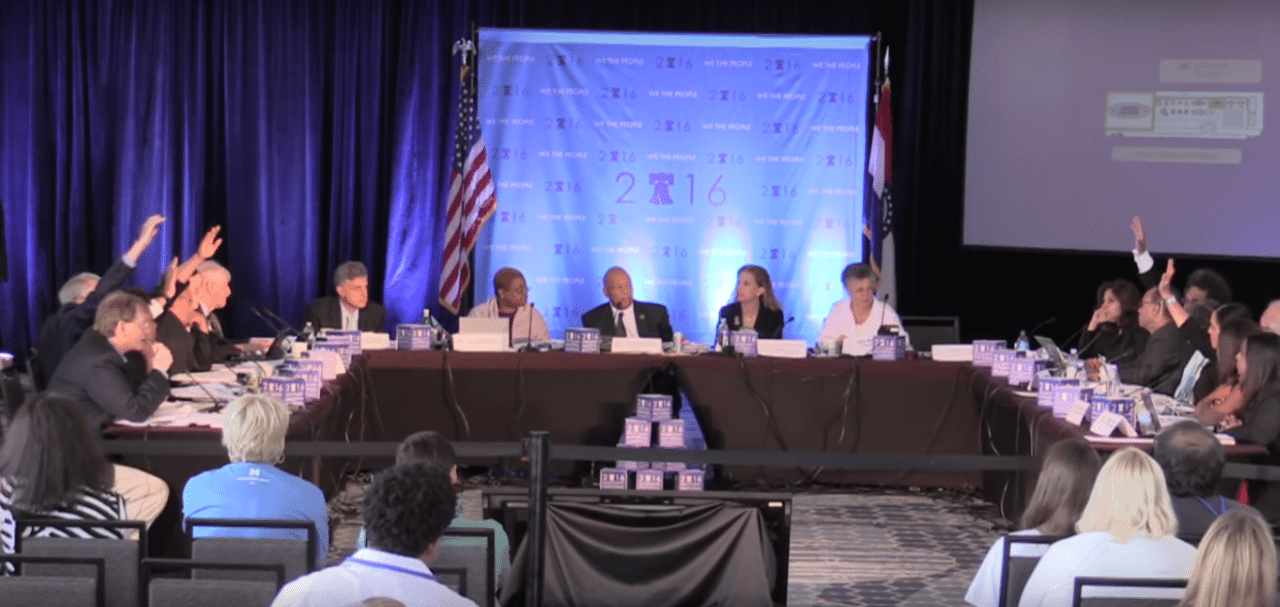
The platform committee of the Democratic National Party arrives in Orlando, Fla., on Friday for its final meeting, a two-day event during which the panel will finalize the party’s 2016 platform ahead of the convention at the end of the month.
This election’s Democratic platform is unique as the platform committee was not selected solely by the party’s nominee because at the time the 15 committee members were appointed in May there was no clear nominee. Therefore, instead of the platform essentially being built on the campaign promises of Hillary Clinton, who has since emerged as the Democratic nominee, committee members appointed by Sen. Bernie Sanders (I-Vt.), who ran a more liberal campaign, had some say in the final document.
Sanders named five of the committee members, Clinton named six, and the remainder were appointed by Rep. Debbie Wasserman Schultz (Fla.), chair of the Democratic National Committee.
It seems, however, that Sanders’ views on climate change haven’t been accepted into the platform as of yet. During that last meeting of the committee, held in St. Louis, Mo., June 24-25, several amendments offered by Bill McKibben, co-founder of the environmental group 350.org and a Sanders nominee, were voted down and the climate portion of the draft platform that emerged looked very much like Clinton’s energy and climate plan.
McKibben offered amendments to support a carbon tax, a ban on fracking, the end of fossil fuel leasing on federal lands, and mandating that federal agencies consider the potential climate effect of their actions. All of the amendments were voted down 7-6 with all of the Clinton appointees voting in opposition.
“In other words, the Clinton campaign is at this point rhetorically committed to taking on our worst problems, but not willing to say how. Which is the slightly cynical way politicians have addressed issues for too long—and just the kind of slickness that the straightforward Sanders campaign rejected,” McKibben wrote in an editorial published in Politico Magazine after the meeting.
McKibben did not respond to requests for comment.
Carol Browner, a Clinton appointee to the platform committee who served as Environmental Protection Agency administrator under Bill Clinton, responded in her own editorial, stating that there are many more ways to deal with climate change than through carbon pricing and banning fracking. “In short, we have more than two tools at hand. And it’s a good thing, because there is no single, magic lever that will solve this crisis,” she wrote.
The draft platform being considered Friday and Saturday does make significant movement on climate, even if it doesn’t go as far as McKibben would like.
The draft emphasizes a need to transition quickly to low- and no-carbon energy sources, veering off from the “all-of-the-above” energy strategy pursued by President Barack Obama. “We are committed to getting 50 percent of our electricity from clean energy sources within a decade, with half a billion solar panels installed within four years and enough renewable energy to power every home in the country,” the platform says, drawing heavily from Clinton’s campaign promises.
The draft also says the party supports expanding the Clean Power Plan, carbon emissions standards for existing coal-fired power plants, and ending tax breaks and subsidies for fossil fuel companies.
While not outright saying Democrats would end all fossil fuel extraction on federal lands, the draft does state, “We can phase down extraction of fossil fuels from our public lands, starting with the most polluting sources, while making our public lands and waters engines of the clean energy economy and creating jobs across the country.”
Of course, the document produced in St. Louis is a draft and this weekend’s meeting could result in changes. Any measures that can’t be agreed upon will be brought to the floor of the Democratic National Convention being held in Philadelphia from July 25-28.
Representatives from the DNC did not respond to requests for comment.